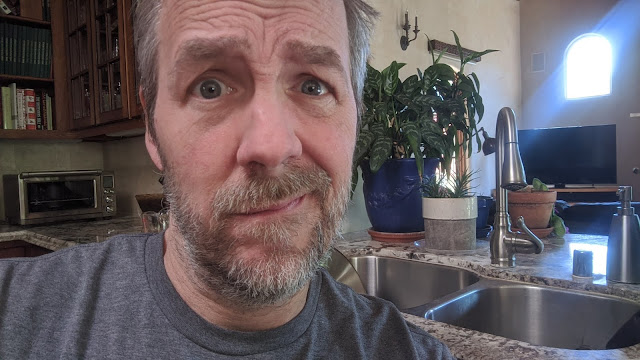2014 MS Blogger Summit, Day 2
When I received an invite to attend an “MS Blogger
Summit”—with travel, accommodations and food comped for me and my caretaker
(aka wife)—my right eyebrow went skyward and my Spidey Sense started to tingle.
Either that, or my MS was just acting up. In any case, I was suspicious. While
I’m not anti-Big Pharma, I prefer to keep them at arm’s length, approaching
them with the same caution I’d use when stepping over a barbed-wire fence or
juggling chainsaws.
Why would a drug company summon a gang of nine bloggers, most
of whom did not use their product, to dissect their outreach to the MS
community? More than a few of us were skeptical. After all, while the Novartis folks
we were meeting with work in a variety of arenas within the company, they all
still are working toward the same ultimate goal: sell more product. How would
they try to woo us beyond free-flowing Yellow Tail and 14-second limo rides?
Curiously (and thankfully), they didn’t even try. Instead, all 11 Novartis reps—not
just specialists in social media, advertising, marketing, and public relations,
but nurses and neurologists—listened intently, asked relevant questions, and answered
concerns. (Thanks, again, to those ActiveMSers who submitted questions to me in
advance.)
Our panel of nine was moderated flawlessly, which maximized
our time and allowed us to tackle myriad topics, from the nitpicky (easier-to-open
packaging) to the global (how to better assist the MS community). The one thing
that was rarely discussed: Gilenya. The expected sales pitch never came. But we
were all candid as to what was wrong with the pharmaceutical industry in
general. Lack of transparency. Lack of honesty. Lack of authenticity. Blogger
Matt Allen said it best: “Enough phony images of people flying kites and riding
bikes.”
In truth, all pharmaceutical companies are somewhat hamstrung
in their outreach, for better or for worse, by strict FDA regulations. Many of
these regulations make brilliant sense and we need them in the industry. But
some, hmm. For instance, every Gilenya Tweet needs to be approved by the FDA.
Every. Single. One. Even if it has nothing to do with the medication. The
four-word Tweet “Have a great weekend” would need approval, which takes days.
And there can be no mention of multiple sclerosis or any benefit of the drug
without a complete list of all the side effects. So don’t be personally
offended when they don’t respond for days (or ever) to your Tweet or Facebook
post—they can’t. And when regulations change, which is often, web pages (like a
YouTube channel) will randomly go down so drug companies can revise them to
come back into compliance. It’s a tricky dance, like trying to cha-cha while
skydiving.
If there was one general take away with our posse of
posters from the summit, it did serve to at least humanize Big Pharma. They
listened, and listened intently, or at least so it seemed. Hopefully some of
our advice—and we tossed out lots—will be implemented, and the MS community as
a whole will benefit. But before we all join hands and sing Kumbaya, a few too
many on the Novartis side of the table used the phrase “fair and balanced,” as
in that’s what they were striving to accomplish with their outreach. That’s
like saying “I’m trustworthy, so trust me.” Guys who say that, well, I don’t
trust. It lacks authenticity. If you are truly “fair and balanced” you should
never have to say so—it should be readily apparent in your actions. Novartis
clearly has work to do, as do all pharmaceutical companies, but after our
summit, it appears they may be on the right track.
For takes from a few of the other bloggers at our
meeting, all of whom I now consider friends, click on the below direct links.
Nicole
Lemelle: http://www.mynewnormals.com/half-full/




Comments
There are negatives too, they don't seem to search for cures in addition to therapies. They come across as greedy at times although as a stockholder in some of the pharmaceutical companies, I haven't seen a lot of that greed passed through. I do resent their purchase of newly discovered existing therapies only to get them approved under a different form and charge an exorbitant price for them (as happened with Tecfidera).
As a taxpayer and one who has watched his insurance premiums skyrocket, I resent their manipulation but as a PWMS, I love it.
If it was really Novartis's intention to improve their outreach to PWMS, I hope they find a way, and I hope they're "Fair and Balanced" too. I can't help but wonder what they took away from the summit.
Larry
AKA: AMf Adventures